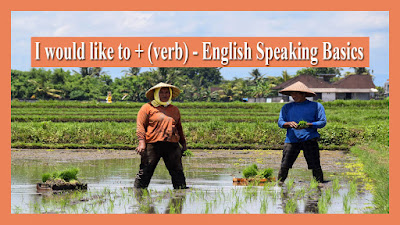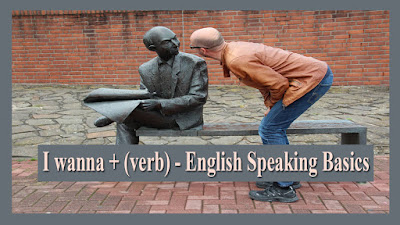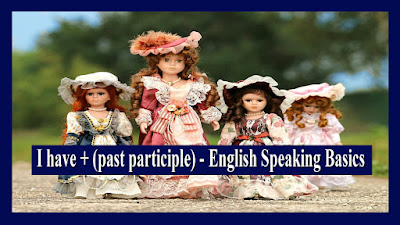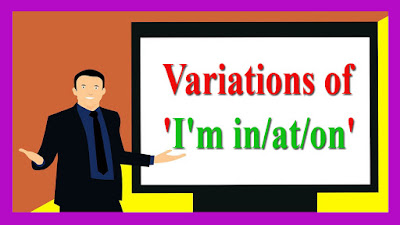I would like to + (verb) - English Speaking Basics
I would like to + (verb) this sentence tell anyone what you want to do. It can feel nice to use. It can be through physical, mental, or verbal action.
మీరు ఏమి చేయాలనుకుంటున్నారో I would like to + (verb)ఈ sentence ఎవరికైనా తెలియజేస్తుంది. ఇది ఉపయోగించి చక్కగా భావాన్ని వ్యక్తం చేయవచ్చు. అది శారీరక, మానసిక లేదా శబ్ద చర్య ద్వారానైనా కావచ్చు.
 |
| I would like to + (verb) - English Speaking Basics |
Here are some examples:
"I would like to answer that question."
"I would like to compete in a cooking contest."
"I would like to explain myself."
"I would like to invite you over."
"I would like to practice."
"I would like to become a doctor."
"I would like to thank you."
"I would like to learn about animals."
"I would like to meet the President."
Latest Spoken English WhatsApp Group Links List 2021
English Speaking WhatsApp group links
Learning Spoken English Whatsapp Groups Link In 2021
English Literature WhatsApp groups
Spoken English WhatsApp Group Links 2021
Join English Practice WhatsApp Group Links

 K.S.Chowdary
K.S.Chowdary


















%20-%20English%20Speaking%20Basics.jpg)
%20-%20English%20Speaking%20Basics%20-%20Part%20III.jpg)

